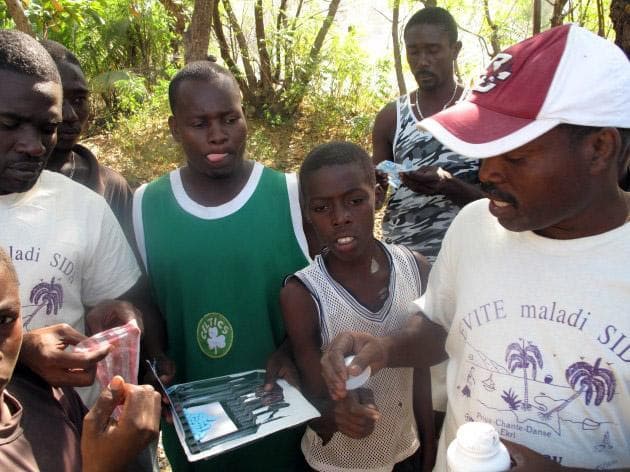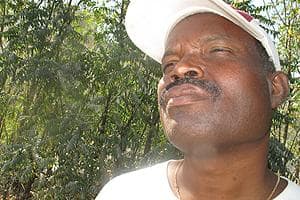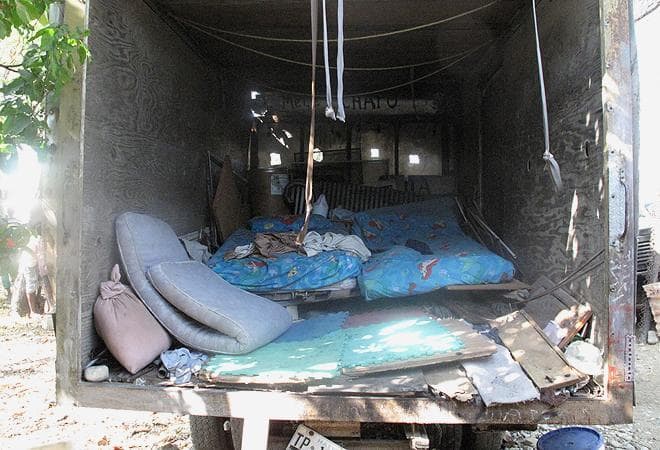Advertisement
A Boston Cabbie Turns Up Amid Haiti's Rubble
Resume
A little more than a year ago, we told you the story of Jean Magloire, a Boston cab driver who spends much of his year in his native Haiti, where he runs a health program, the Comprehensive Haitian American Program Outreach. Its acronym led to Magloire's nickname, "Chapo," which also happens to be Haitian slang for the condoms Magloire distributes as part of his outreach program.
Chapo's village of Merje was devastated by last month's massive earthquake. Reporter Seth Rolbein visited Haiti after the quake, and went looking for Chapo.
Chapo is alive, though to listen to his vivid recollection of the Jan. 12 earthquake, just barely.
"(I was) finishing a day of work, and I was under a three-story building," Chapo said, "when I feel the ground shaking, and I see the top collapsing on the next one, into the next one, into the next one, like a domino. And I hold on to a post and flew through the window. And I went by the sea and the sea was dry, and suddenly I see big waves coming at me, up to my knees."

Chapo said the earthquake lasted 15 seconds — plenty of time to do irreparable damage. "We Haitians who had barely nothing, now we have absolutely nothing," Chapo said.
Chapo's own house is perched between highway and sea, only a few feet from both. Its cement walls still stand but they are split by jagged cracks. Inside, his possessions are smashed or askew, as if a boat tossed in a wild storm. A broom handle buttresses the tilting ceiling — little protection against another aftershock.
"This is a place that is not habitable," Chapo said. "It's too risky to live in here. So this house will have to be broken down." For the time being, he is sleeping in the back of a container truck.
He has also blocked the entrance to his parking area in order to prevent people from dropping off dead bodies. He said he is suspicious of approaching cars, remaining vigilant late into the night.
"So, Chapo, you're alive."
"Yes, indeed. Thanks to the almighty God."Chapo has been distributing basic medical supplies gathered by a Christian prayer group from Roslindale. The most popular item in his plastic crate is ibuprofen.
But the Haitian people, most importantly, need jobs, Chapo said.
"Haitian people are not lazy," he said. "They are willing to work, but there are no jobs. Look at the young men around here, the young women. They would like to work. We don't need food, water. Yes, there are some people who need food and water. But if we have jobs we can purchase what we need."

While Chapo plans to be back in Boston in April, as previously scheduled, he knows he is needed in his native land. "I am a captain. I cannot abandon the ship, even if it is sinking," Chapo said. "I will have to be the last one to leave here. I will not leave here until I have seen my community get what they need, what they deserve."
With that, Chapo returned to the people clustered in his yard to offer them what he could, for now — consultation and more ibuprofen.
Click "Listen Now" to hear the interview with Chapo.